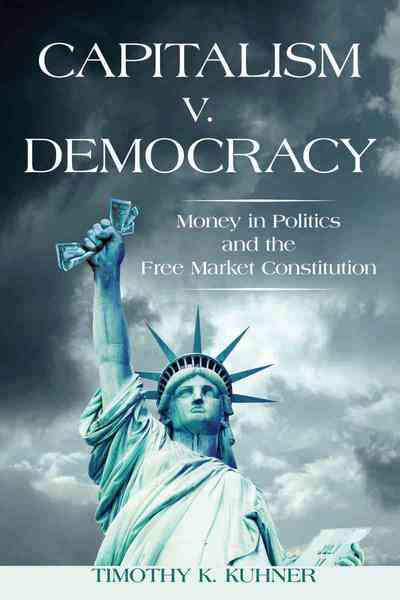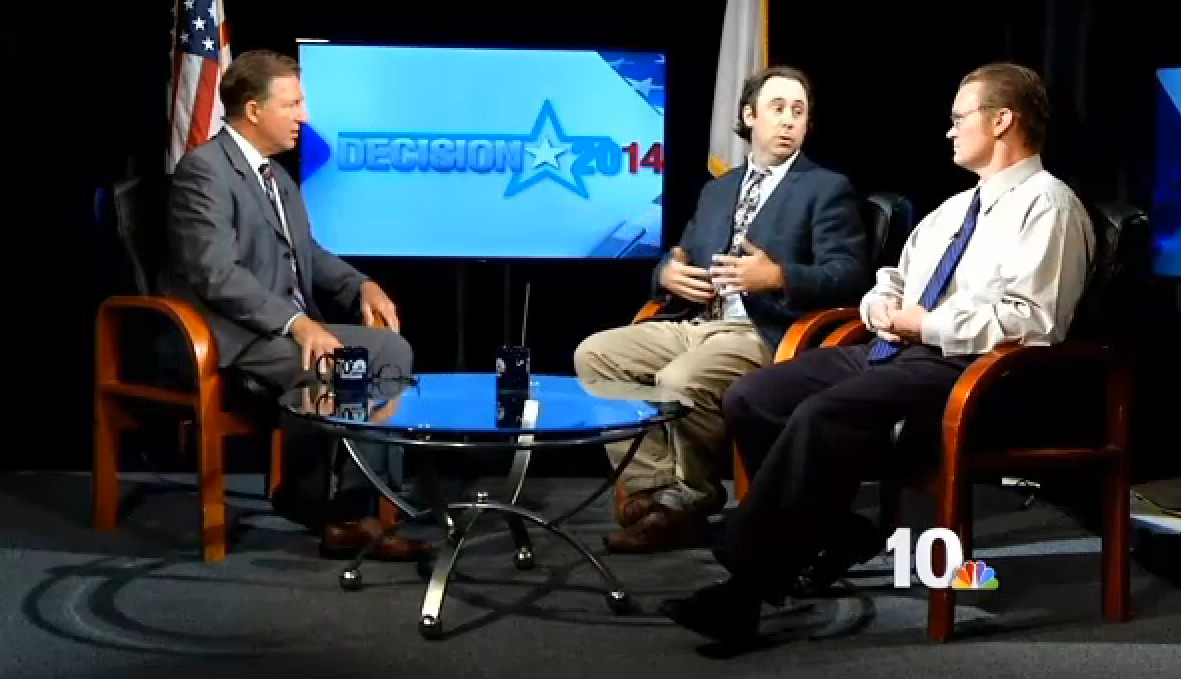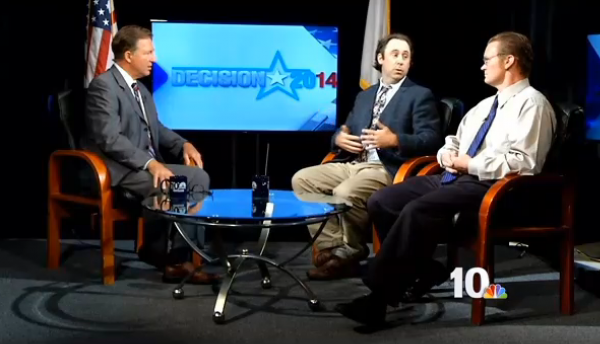 Is capitalism killing democracy?
Is capitalism killing democracy?
Former Roger Williams University professor Timothy Kuhner will be back in the Ocean State on Wednesday to discuss this very vexing conundrum.
His new book is called “Capitalism v. Democracy: Money in Politics and the Free Market Constitution” explains how the run-away cost of running for office has, according to the publisher, “corrupted American democracy, turning it into a system of rule that favors the wealthy and marginalizes ordinary citizens.”
Kuhner is an expert on the subject. He now teaches at Georgia State University and is a former board member of Common Cause RI – which is hosting a talk on his book featuring the author Wednesday at the William Hall Library, 1825 Broad Street in Cranston, 6pm.
He wrote this post, exclusively for RI Future [Ed. note: thanks John Marion!], as a preview of the discussion.
A Midterm Elections’ Nightmare
by Timothy K. KuhnerRhode Islanders are poised to decide on campaigns for governor, secretary of state, the General Assembly, U.S. Congress, and even a constitutional convention this November. Although the course of democratic elections never has run smoothly, we can expect a tragedy this time around as candidates and voters pursue civic duty in a free-market wilderness. Lost in this wilderness, democratic actors succumb to a terrible and most confusing spell.
Candidates spend most of their time fundraising, instead of getting to know their geographic constituents, for they must raise millions of dollars each from private donors in order to mount a viable campaign. (And this is to say nothing of the billion dollar sums that presidential candidates must raise.) Officeholders read speeches ghost-written by lobbyists. (Indeed, around half of senators go on to accept lucrative jobs on K Street upon leaving office.) Countless bills introduced into state legislatures begin as model legislation drafted in meetings between business concerns and representatives. Even the public debate takes on the content and tone desired by monied actors, in this case
SuperPACs and dark money groups that raise unlimited sums from wealthy donors and corporate general treasury funds. Spending by 501(c)(4) social welfare organizations, which do not disclose their donors, passed the $50 million mark this August, a seven-fold increase from where it stood at that time during the last midterm elections. The money that can be traced reveals that 0.18% of the U.S. population supplies 65% of all contributions to candidates, PACs, and parties, and less than .000001% of the population provides 70% of all SuperPAC funds. Is it any wonder that voter turnout rates suffer, laws serve the private good over the public good, and economic inequality skyrockets?
A large majority of citizens, most candidates, and even a sizeable quantity of wealthy donors and spenders would prefer to get out of this free market wilderness; however, federal and state campaign finance reform laws, have been consistently struck down by the U.S. Supreme Court. In Citizens United, the Court called limits on corporate general treasury spending an interference with “the open marketplace of ideas protected by the First Amendment.” It went on to state that corporate influence and access to elected officials “does not mean that these officials are corrupt.” And just this past April in McCutcheon, the Court compared the Koch brothers to the heroes of the American Revolution, declaring that rights of speech and association apply just as readily to “someone who spends substantial amounts of money in order to communicate his political ideas” as they do to “a lone pamphleteer or street corner orator in the Tom Paine mold.”
In the end, the Court’s love for the political market and its biggest investors is as absurd as Titania’s love for the ass-headed Bottom in Shakespear’s Midsummer Night’s Dream. Declaring that money is speech, corporations are citizens, and that congressional interests in democratic integrity and political equality do not warrant reforming the system, the Court condemns all Americans to the nightmare of a democracy imprisoned in a free-market wilderness. “Out of this wood do not desire to go: Though shalt remain here, whether thou wilt or no.”


